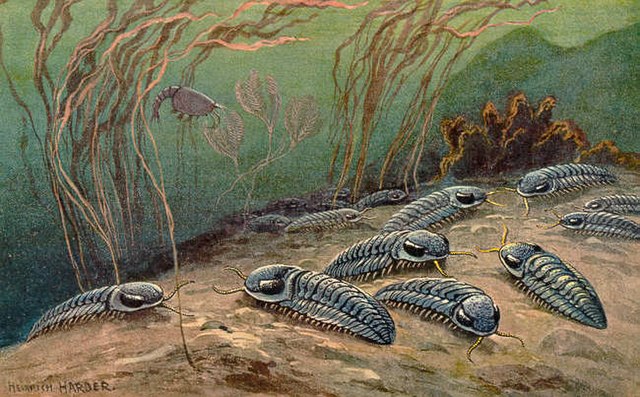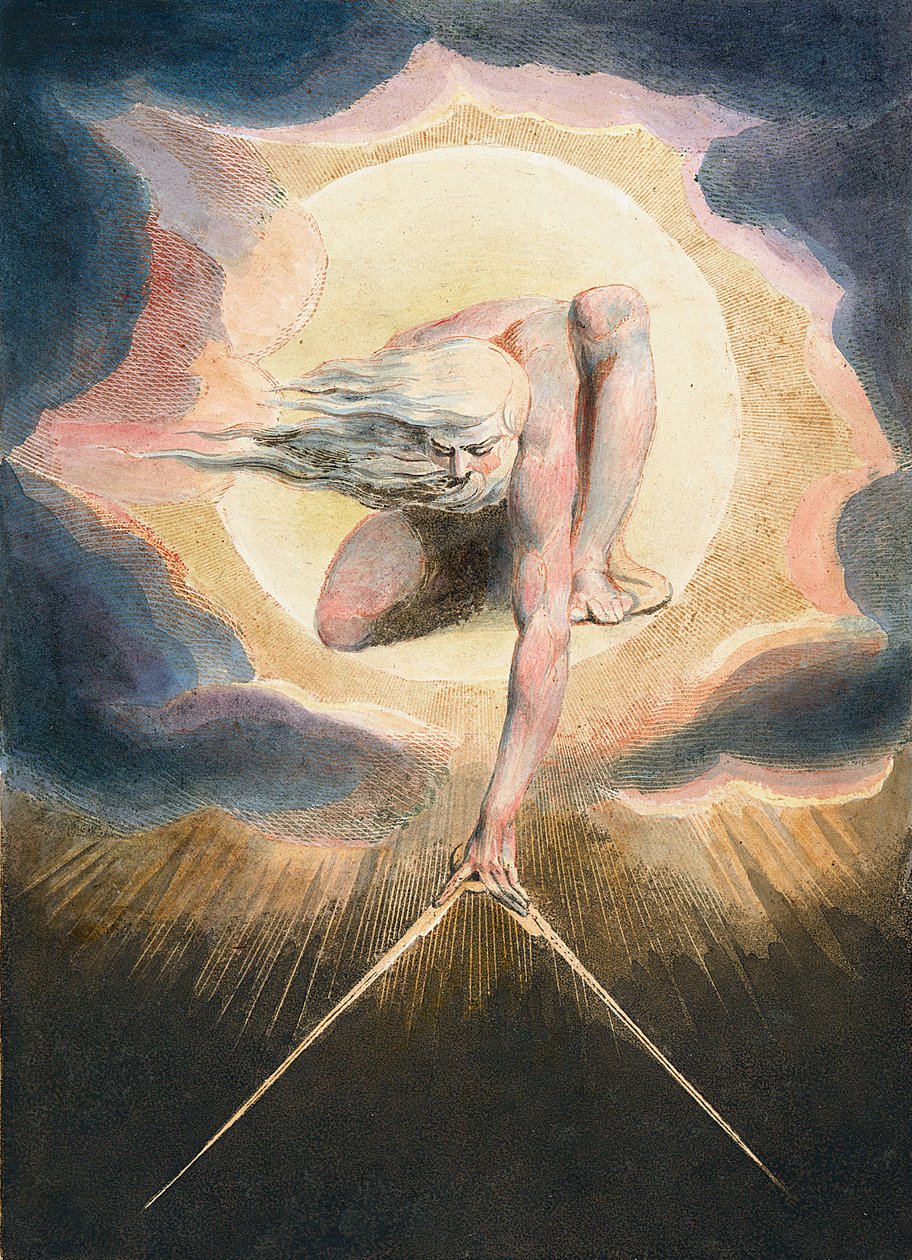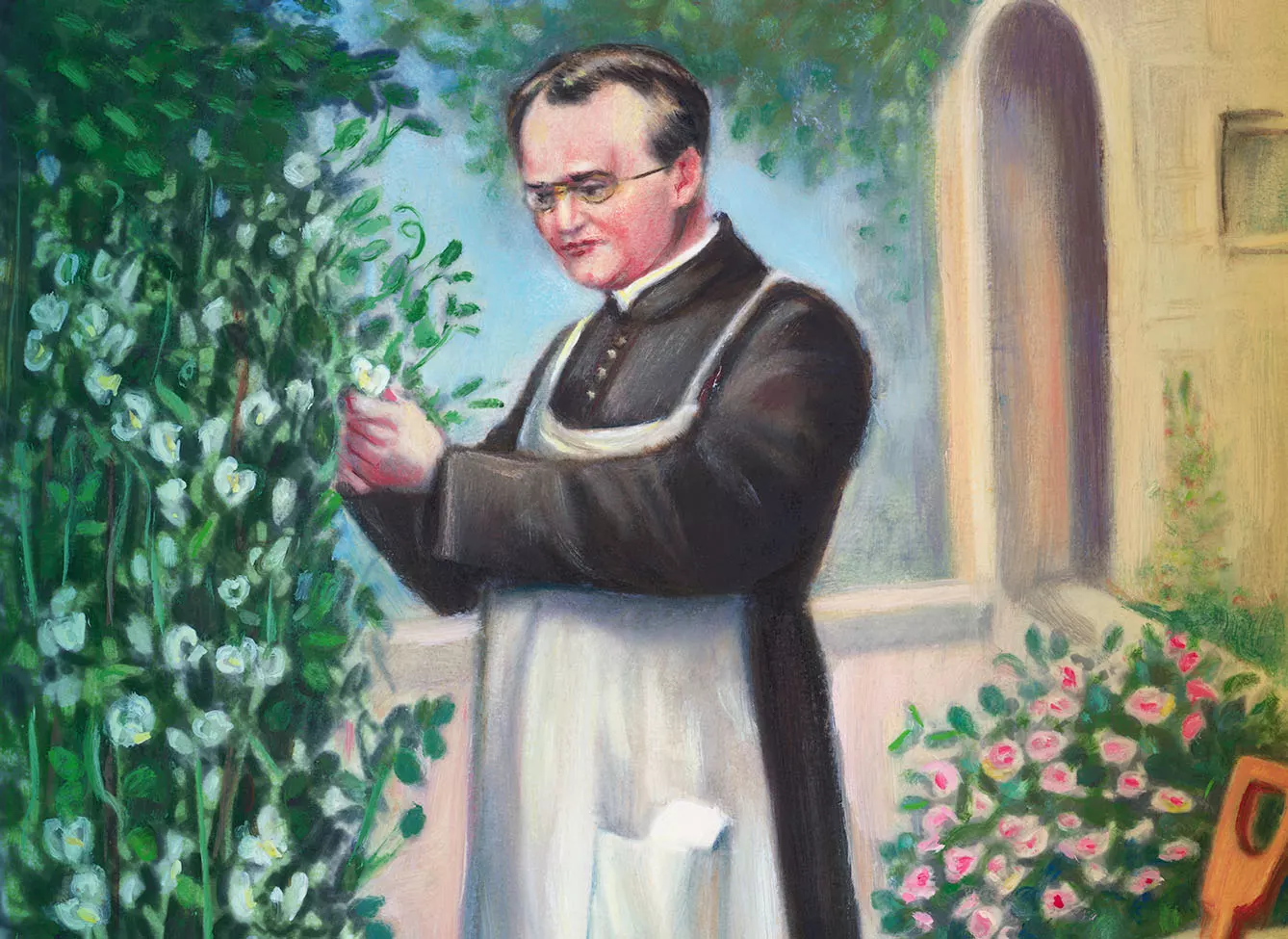
Let's imagine, for the sake of argument, that the mystery was solved. Entertain the thought that scientists have discovered some complex natural process from which life came forth from nonliving material. Does that thought seem threatening to you? If it does, this post is for you.
That same fear and indignation you may be feeling right now has catalyzed longstanding resistance to biology and geology since the inception of those disciplines. A century ago in 1925, fundamentalists put a high school teacher on trial for teaching evolution and even brought out live chimpanzees to help ridicule the idea. Since then, there have been countless attempts to remove the teaching of evolution from the classroom and insert young-earth religious ideas. But let's think about this a bit further. Why are the earth sciences so threatening in particular?
A chimp at the scopes trial.
In the western mind, there has been a longstanding conceptual dichotomy which divides the world into natural and supernatural causes. Natural processes happen on their own as a result of natural laws, while supernatural events violate these laws and occur completely separately from nature. This means that for any given event, there are two distinct agencies that can be responsible. Mechanical natural processes or the supernatural powers of a sentient God.
Thinking about it this way, it becomes crystal clear why science seems so threatening to God. Because of the dichotomy (which is taken for granted by many theists and atheists alike) when science discovers natural processes responsible for various aspects of our world, the agency and power of God appears to shrink, and God can only live within the rapidly narrowing gaps of our knowledge. When the theory of evolution explained the emergence of different species, it then followed that God could not be responsible for the creation of those species. Under this worldview, if some working theory of abiogenesis was discovered, it would be the worst assault upon God possible, usurping his power to create and sustain life itself.
Following this dichotomy, the atheist sneers that since the science is correct, God is dead. The religious fundamentalist retorts that God is alive, so the science must be wrong. Seeking safety, they turn to pseudo-scientists who assure them that these scary scientific discoveries are indeed frauds. They move to suppress these ideas in public schools, or corral their children into home-schools and religious schools that won't expose their delicate ears to these evil teachings.

It should be clear that there's a flaw in the dichotomy and that we are starting from bad assumptions. To reiterate, the dichotomy divides the world into natural causes and supernatural causes. Natural events happen automatically as a result of natural law, while supernatural events occur because of divine intervention. But if we take God seriously, this dichotomy cannot hold. God is the wellspring of all being and the ultimate cause of everything. He is the First Cause, the Absolute, and reality at every level proceeds from Him. Thus, all processes are ultimately supernatural processes in the final analysis, and therefore the dichotomy is revealed to be completely meaningless.

Every process that science describes has God at its root, but because we assume that these processes must be blind and mechanical, it seems as though science is uprooting the influence of God wherever it goes. Scientific discovery appears to turn a living, wondrous world into a dead machine, and a retreat into the warm blanket of ignorance may seem preferable. Thankfully, this is all just a self-imposed delusion.
There is no reason to divide the world into blind processes and God-ordained processes, and there is no need to think of God as an alien agent acting upon the world from some faraway throne. With this in mind, science stops being a threat to God. It merely becomes a way to describe how the processes set in motion by God have played out over time, and how his will has unfolded throughout the universe.
Man is the child of God and nature, because the two have never been separable. Whether Adam was made of literal clay or rather of the 'clay' of archaic biological matter makes zero difference to me and my faith. God's providence sustains the universe and is the ultimate source of all its activity, from the formation of the stars, to the first quickening of primordial life, to all the diverse forms of life that have been lovingly fashioned by the divine will through eons of time.
I don't need to try to find 'seams' and 'cracks' in nature to pour God into as if he was a quick-drying cement, (as 'Intelligent Design' proponents try to do), Because He is the very foundation nature rests upon. He is the beating heart of the cosmos, and nature is His perfect order, from beginning to end. In him, we live and move and have our being.
It is worth bearing in mind that this attitude was what kickstarted the natural sciences in the first place. Because the universe proceeds from the mind of the divine, it reflects the order and intelligibility of the divine. Therefore, we can use our share of intelligence to interpret and understand the divine processes that shape our world. Science is not a threat to deity. It is only possible because of deity. And at its best, it is a process of discovery and communion with deity.

Gregor Mendel, a Catholic Monk, is held to be the father of genetics, which he discovered by experimenting with pea plants in his monastery. Genetics is one of the strongest lines of evidence supporting the theory of evolution.
Note what I am not saying here. I am not saying that science can answer every question. The reason science is so effective is because of its laser-focus on a very narrow portion of a broader reality, that being material processes. Just because certain materialist dogmatists assert that the only reality that exists is the part amenable to scientific inquiry doesn't make it so. But the limitations of science do not mean that we shouldn't give it its due when it is investigating things that belong under its purview. Sometimes science is abused, but what science can do, it usually does well.
I doubt that this post will convince anyone in the fundamentalist camp to embrace the discoveries that have been made in earth science and life science. These discoveries are compatible with a belief in God, but they are much tougher to square with a naive, literalist reading of scripture. If you're committed to that view, there's not much I can do for you. All I can do is articulate how I am able to hold a faith which is curious, rather than afraid.





No comments:
Post a Comment